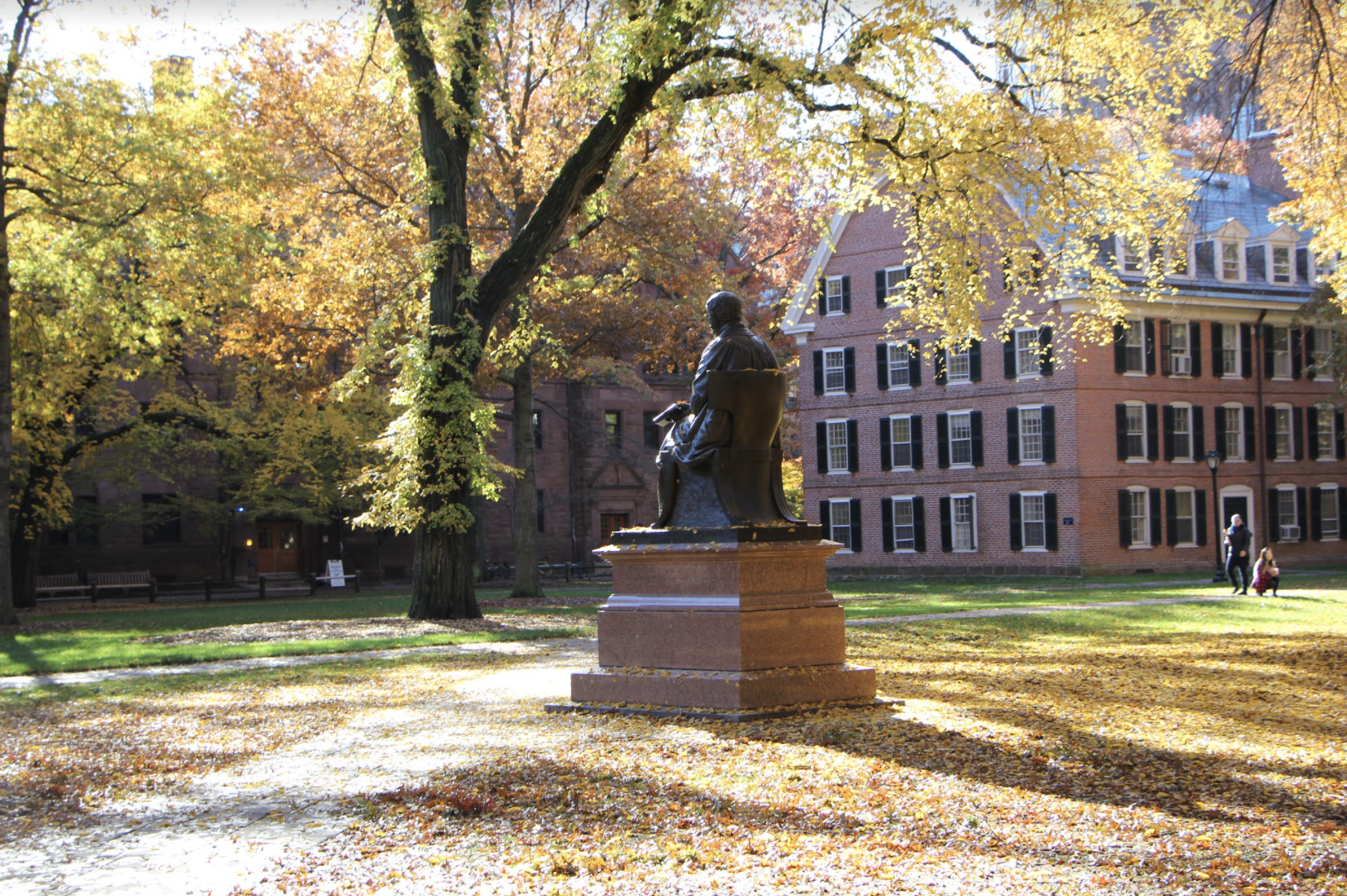
Logan Howard, Senior Photographer
During a Faculty of Arts and Science Senate meeting held on Oct. 15, Senate Chair and professor of African American studies, history and American studies Matthew Jacobson read a prepared statement about how faculty should respond to current events such as the pandemic and racial tension in the U.S., especially in the weeks leading up to the presidential election.
The statement asked faculty members to be cognizant of the stresses that students may be feeling with regards to the presidential election, specifically recommending that faculty move assigned coursework originally scheduled for close to the election to a later date. In interviews with the News, four faculty members and students expressed appreciation for the sentiments of the statement, with faculty giving examples of how those recommendations are being implemented in their classrooms.
“We cannot promise our students that everything will be fine,” Jacobson wrote in his statement. “But we can promise that we hear them, that we are continuing to listen, that we share their concerns and fears and also their hopes, that we are all in this together, that we will have their backs as best we can, and that — as history shows — our shared and collective studies are among the antidotes to such periods of social and political travail.”
The student push for accommodations on Election Day is months in the making and is primarily led by Yale Votes, a nonpartisan coalition formed by the Yale College Council, Every Vote Counts and the Yale College Democrats.
A campus outreach coordinator for Yale Votes, Alex Halberstam ’22, told the News that the group is in the process of asking faculty to pledge that they will assign no coursework or exams on Election Day, as well as providing excused absences to students who will be working as poll workers.
Halberstam referenced her “Principles of Biochemistry I” professor Candice Paulsen as an example. She recently moved their Nov. 3 discussion section two days later.
As of Wednesday afternoon, 43 professors have signed onto the pledge.
While Halberstam said that much of the work they are doing surrounding coursework on Election Day is centered around making sure students are able to vote and work the polls, the stress that students feel leading up to an election that can be “very high stakes and personal,” and is “certainly part of our work, too.”
Tamar Gendler, dean of the Faculty of Arts and Sciences, told the News that, while the election is an important stressor for many students, there are other concerns that make the world a challenging environment. Gendler listed international students living in a setting with political crackdowns or students with challenging home situations as some examples.
She emphasized that faculty should remember to be humane, both in the coming weeks and throughout the semester.
Jacob Hacker, professor of political science and director of the Institution for Social and Policy Studies at Yale University, told the News that he supports the sentiment of the statement. He has been conducting his seminar with current events in mind for the entire semester.
“Each week I have included at least one reading about our present crisis related to the week’s topic,” Hacker wrote in an email to the News. “I have also set aside 30 minutes of the class to discuss our contemporary health, economic, and political crisis. The students have appreciated it.”
Daniel HoSang, associate professor of ethnicity, race and migration and American studies, also discusses current events in his seminar, “Anti-Racism, Racial Justice and Freedom,” by looking at past social movements, artists and activists. However, he also emphasized that the forces that fueled the pandemic, uprisings and stress around the election should be talked about always, not just leading up to Election Day.
Marci Shore, associate professor of history, told the News that professors need to take up space in their class to discuss the election and other crises.
She recalled four years ago, the day after the election, when her students asked her what would happen next.
“I couldn’t tell them that it would be okay,” Shore said. “I’m a historian — I knew it was not going to be okay. I could only be there with them, and start to talk through the questions, the phenomena, the historical precedents. And I felt then that it was important that I was there with them, that we were there together, even though I couldn’t reassure them of anything.”
Four years ago, Shore completely restructured her spring class, “Philosophy of History in Central Europe”, in response to the election, adding readings that specifically touched on discontent, conspiracy theories, responsibility and more.
This year, she launched a forum entitled “On the Uses and Disadvantages of Historical Comparison for Life,” which was created with the goal of helping students address the current moment.
“Understanding is not fixing,” Shore said, “but it is a necessary first step.”
Election Day is Nov. 3.
Madison Hahamy | madison.hahamy@yale.edu







